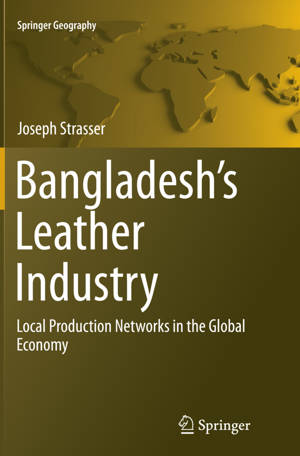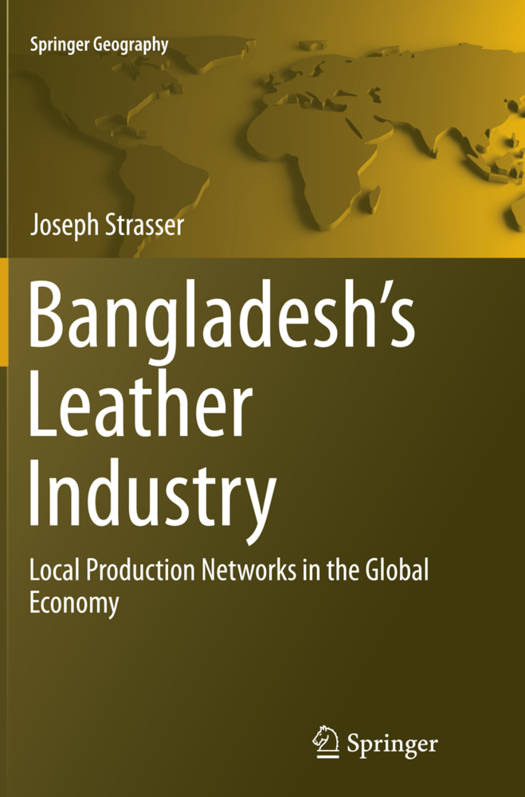
- Retrait gratuit dans votre magasin Club
- 7.000.000 titres dans notre catalogue
- Payer en toute sécurité
- Toujours un magasin près de chez vous
- Retrait gratuit dans votre magasin Club
- 7.000.000 titres dans notre catalogue
- Payer en toute sécurité
- Toujours un magasin près de chez vous
Description
This study provides an overview of how the Bangladeshi leather value chain is organised and governed. It analyses how the leather processing and leather goods/footwear subsectors are integrated into the global market and to what extent informal arrangements including illicit practices are conducive to global market entry. Power relations are dissected along the value chain, in order to analyse how local producers adapt to upholding competitiveness. The results of the work show the need to devise upgrading strategies which pay heed to the reality of informal dynamics in a global value chain (GVC) to improve the local producers' competitiveness. The GVC perspective was combined with considerations on upgrading, subcontracting, middlemen and informality to adequately analyse the complexity of the transactions in the chain. The data of this study are drawn from empirical field studies in Dhaka, Bangladesh and other sections of the international leather value chain during the time period of 2010 to 2014. A qualitative research approach was complemented with quantitative methods.
Spécifications
Parties prenantes
- Auteur(s) :
- Editeur:
Contenu
- Nombre de pages :
- 286
- Langue:
- Anglais
- Collection :
Caractéristiques
- EAN:
- 9783319370637
- Date de parution :
- 22-10-16
- Format:
- Livre broché
- Format numérique:
- Trade paperback (VS)
- Dimensions :
- 156 mm x 234 mm
- Poids :
- 426 g







